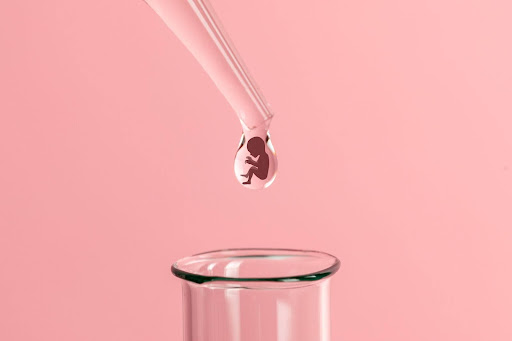May 31, 2024
8 Communication Tips For Couples Dealing With Infertility

Facing infertility can be an emotionally challenging journey for couples, often testing the strength of their relationship. The journey through fertility treatments, disappointments, and uncertainties can strain communication between partners. However, open and supportive communication is essential for navigating this difficult time together. Here at Island Reproductive Services, we have put together some effective communication tips for couples dealing with infertility
1. Create a Safe Space for Open Dialogue
Dealing with infertility can evoke a range of emotions, including sadness, frustration, anger, and guilt. It’s crucial for couples to establish a safe and non-judgmental space where they can openly express their feelings without fear of criticism or misunderstanding. Both partners should feel comfortable sharing their thoughts, concerns, and fears, knowing that they will be heard and respected.
2. Practice Active Listening
Listening is a fundamental aspect of effective communication. Make a conscious effort to listen attentively to your partner’s thoughts and feelings without interrupting or immediately offering solutions. Reflect back what you’ve heard to ensure understanding and validate your partner’s emotions. Active listening fosters empathy and strengthens emotional connection between partners.
3. Share Responsibilities and Decision-Making
Dealing with infertility can place a significant burden on both partners, emotionally, physically, and financially. It’s essential to share responsibilities and decision-making throughout the fertility journey. Collaborate as a team when scheduling appointments, researching treatment options, and managing the logistical aspects of fertility treatments. Sharing the load can alleviate stress and foster a sense of partnership and mutual support.
4. Be Honest and Transparent
Honesty is paramount in maintaining trust and intimacy in a relationship, especially when navigating infertility. Be honest with your partner about your feelings, concerns, and limitations. Avoid withholding information or keeping secrets, as this can lead to misunderstandings and resentment. Transparency fosters trust and reinforces the bond between partners.
5. Set Realistic Expectations Together
Infertility treatments can be unpredictable, with no guarantees of success. It’s essential for couples to set realistic expectations together and manage each other’s expectations throughout the process. Discuss the potential outcomes of fertility treatments openly and explore alternative options if necessary. Setting realistic goals can help reduce disappointment and maintain hope while dealing with infertility.
6. Prioritize Self-Care and Emotional Support
Dealing with infertility can take a toll on couples’ mental and emotional well-being. It’s crucial to prioritize self-care and seek emotional support as needed. Encourage each other to engage in activities that promote relaxation, stress relief, and emotional resilience. Additionally, consider seeking support from counselors, support groups, or online forums specializing in infertility to connect with others who understand your experience.
7. Take Breaks from Fertility Talk
While it’s essential to communicate openly when dealing with infertility, it’s also important to take breaks from fertility talk and focus on other aspects of your relationship. Make time for activities that bring joy and connection, such as date nights, hobbies, or shared interests. Taking breaks from fertility discussions can provide much-needed respite and strengthen your bond as a couple.
8. Seek Professional Help if Needed
If communication challenges persist or become overwhelming, don’t hesitate to seek professional help from a therapist or counselor specializing in infertility. A trained professional can provide guidance, support, and strategies for improving communication and coping with the emotional impact of infertility.
Effective communication is vital for couples navigating infertility. At Island Reproductive Services, after learning about your goals, your past history, and often your apprehensions, treatment options are discussed with you and/or your partner. Your individual needs become our motivation. We are experts in providing the care that your situation requires. For more information or questions about dealing with infertility, check out our website or give us a call at (718) 948-6100.


